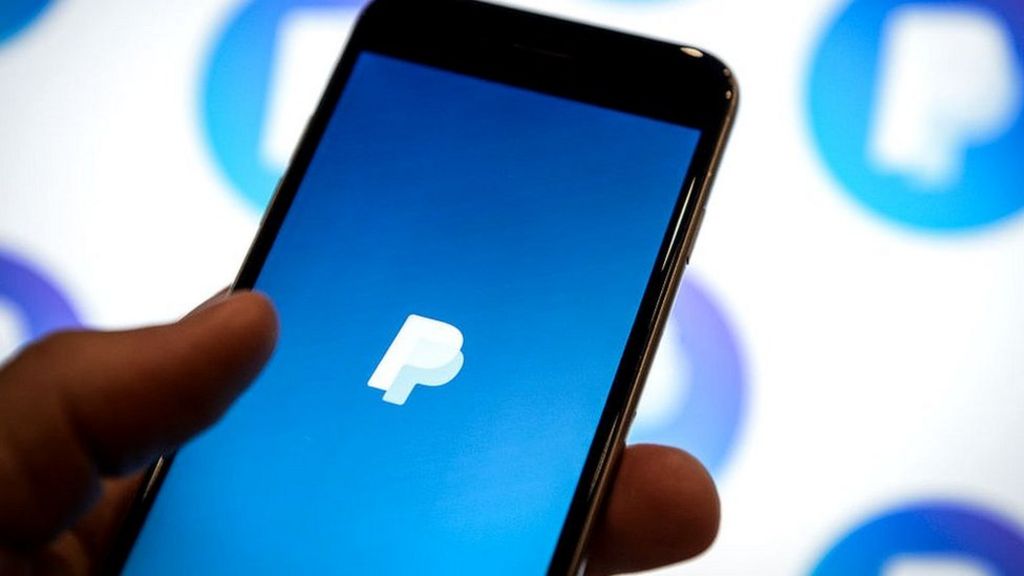SEC Drops Probe Into PayPal’s Stablecoin, Clearing Path for Crypto Expansion
01.05.2025 8:00 2 min. read Alexander Stefanov
Regulatory clouds have cleared for PayPal’s stablecoin, PYUSD, as the SEC has officially ended its investigation without pursuing any enforcement.
The update, quietly disclosed in the company’s Q1 2025 filing, marks a significant moment for PayPal’s expanding crypto ambitions.
PYUSD, launched in partnership with Paxos in mid-2023, had drawn attention from U.S. regulators soon after its debut. While the reasons behind the SEC’s inquiry were never made public, PayPal confirmed that the agency has wrapped up its review and won’t be taking further action. With that hurdle removed, the fintech firm may now move more freely in its push to integrate blockchain-based payments into everyday use.
PayPal has made steady progress in building out its crypto offerings, including allowing users to buy and sell digital assets like Bitcoin and Ethereum. But its stablecoin initiative remains central to its long-term vision. PYUSD is pegged to the U.S. dollar, supported by reserves and short-term Treasuries, and is positioned as a tool for fast, low-cost payments.
Despite limited adoption so far, the company is promoting the token for peer-to-peer transfers and merchant checkouts. Executives view stablecoins as a key part of the future financial infrastructure, with plans to expand integration across PayPal’s suite of services. Coinbase has also joined the effort by removing fees for PYUSD transactions, signaling growing momentum for the token’s role in mainstream digital payments.
PayPal’s earnings for the first quarter showed modest growth, with revenues reaching $7.79 billion. Though the report didn’t detail PYUSD-specific usage, it did note the adoption of updated accounting standards for crypto assets.
-
1
Nvidia Surges as Barclays Sees $200 Target on Blackwell Momentum
18.06.2025 11:00 1 min. read -
2
Gold Glides Toward New Peaks as Middle-East Strife Lifts Safe-Haven Demand
15.06.2025 10:00 2 min. read -
3
a16z Backs EigenCloud Launch With Fresh $70M Token Buy
18.06.2025 14:00 1 min. read -
4
ARK Invest Takes Early Profits After Circle’s Skyrocketing IPO
18.06.2025 9:00 1 min. read -
5
Bybit Steps Into DeFi With Solana-Based Platform
16.06.2025 17:00 1 min. read
Market Odds of a U.S. Recession in 2025 Drop in Half Since May
The likelihood of the United States entering a recession in 2025 has dropped significantly, according to the latest market data from prediction platform Polymarket, where recession odds have fallen to just 22%, marking a notable decline from earlier highs in April and May.
Majority of U.S. Crypto Investors Back Trump’s Crypto Policy, Survey Finds
A recent poll reveals that over 70% of U.S. crypto investors support President Donald Trump’s current approach to digital asset policy, reflecting growing optimism within the sector.
Donald Trump Signs “One Big Beautiful Bill”: How It Can Reshape the Crypto Market
U.S. President Donald Trump has officially signed his sweeping policy bill into law, enacting one of the most consequential pieces of legislation of his presidency.
FTX Halts Recovery Payments in 49 Countries: Here Is the List
The long-awaited creditor repayments from bankrupt crypto exchange FTX have hit a major roadblock, with the FTX Recovery Trust announcing a temporary suspension of payments to users in 49 foreign jurisdictions.
-
1
Nvidia Surges as Barclays Sees $200 Target on Blackwell Momentum
18.06.2025 11:00 1 min. read -
2
Gold Glides Toward New Peaks as Middle-East Strife Lifts Safe-Haven Demand
15.06.2025 10:00 2 min. read -
3
a16z Backs EigenCloud Launch With Fresh $70M Token Buy
18.06.2025 14:00 1 min. read -
4
ARK Invest Takes Early Profits After Circle’s Skyrocketing IPO
18.06.2025 9:00 1 min. read -
5
Bybit Steps Into DeFi With Solana-Based Platform
16.06.2025 17:00 1 min. read


